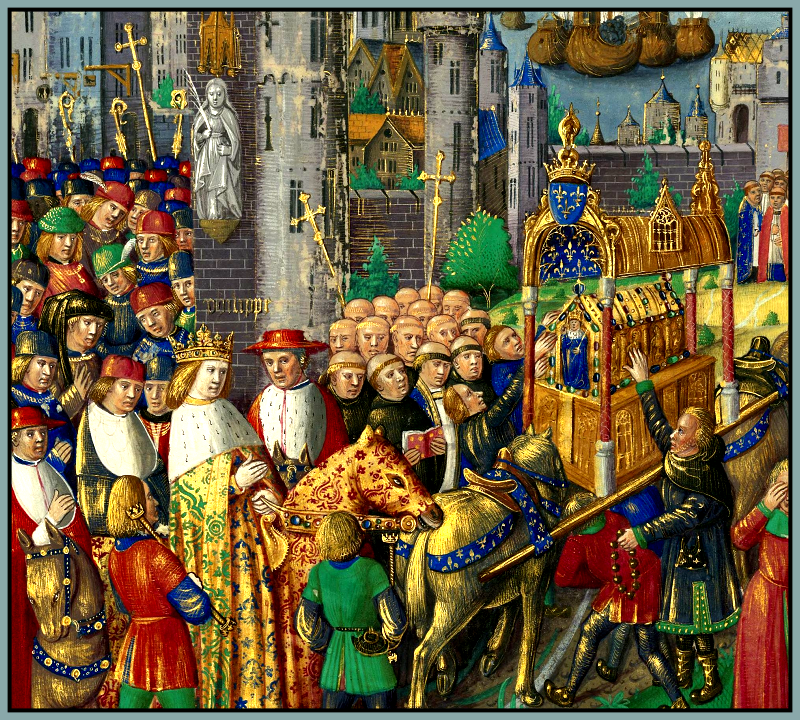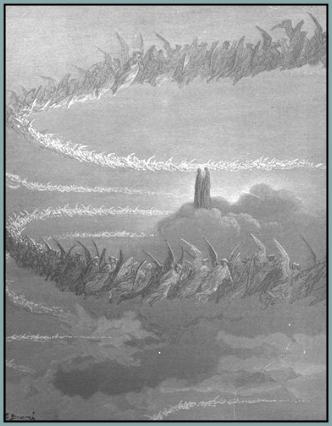“Raise Your Eyes on High”: Spiritual Wisdom Begins in Wonder
Wonder was central to ancient philosophy and to medieval spirituality. Modernity needs more of it.
My previous post, which explored the elemental forces of nature as a path into the mysteries of the human spirit, was enriched by a reader whose insightful comment ended thus: “What a wonderful world we live in.” This connection between wonder and the qualities of the spirit is entirely appropriate: the wonders of the biological and cosmic realms teach us to marvel at the wonders of a mysterious inner life force that cannot be seen or touched and yet plays so mighty and momentous a role in the shaping of history, in the flourishing of culture, and in the epic journey of ordinary life. Even a philosopher as famously modern1 as Immanuel Kant seems to have reflected on this bond between the wonders of the cosmos and the wonders of the interior life:
Two things fill the mind with ever new and increasing admiration and awe, the oftener and the more steadily we reflect on them: the starry heavens above and the moral law within.
That comment about our wonder-full world led me to the topic for today’s essay: wonder in medieval culture and spirituality. As usual, the story begins long before the Middle Ages, which were an era not of feverish innovation but of seeking to perfect—in the old sense of completing, fulfilling—the wisdom and literatures of the ancient world.
In modern English, the word “wonder” has been somewhat diluted by sentences like “I wonder if the post office is open today.” There’s nothing very wondrous going on in that statement; it’s really just referring to the desire for knowledge. The full sense of “wonder” is thauma in Greek, admiratio in Latin, wundor in Old English: a mixture of awe, amazement, curiosity, and pleasure that we feel when beholding something remarkably beautiful, or intricate, or mysterious, or powerful.
When the ancient Hebrews looked to the great crags and mountains of earth, they saw symbols of divine strength and permanence: the Hebrew word tsur literally means “rock” or “cliff” but is often used as a metaphorical term for God. The prose and poetry of the Old Testament shows how keenly the ancient Hebrews discerned the greatness of the Creator in the wonders of Creation.
The heavens show forth the glory of God,
and the firmament telleth the works of His hands.2
Raise your eyes on high, and see who hath created these things...:
He calleth them all by name.3
It is difficult for us to understand how deeply these ideas, particularly when found in the psalms, were engraved into the hearts and minds of medieval communities. The psalms were everywhere in medieval life. Their stirring pleas and elegant phrases and arresting metaphors were recited and sung and heard and savored—day after day, year after year—by Christians from every social class and state of life.
The ancient Greeks likewise recognized the crucial role of wonder in animating and elevating the mind. Their ideas were more philosophical and had less direct influence on medieval culture, but nonetheless, they were foundational, and compelling.
Plato wrote in the Theaetetus that “wonder is the feeling of a philosopher, and philosophy begins in wonder”; here we should understand “philosophy” broadly, as the ancient Greeks did: the love and pursuit of wisdom. Aristotle saw that not only philosophy but also spirituality begins in wonder, and he speaks of this so eloquently that I will quote him at length. He imagines people who had always lived underground but escaped one day into our above-ground world, and then suddenly gazed upon
the seas and the sky, and came to know of the vast clouds and mighty winds, and beheld the sun, and realized not only its size and beauty but also its potency in causing the day by shedding light over all the sky, and, after night had darkened the earth, they then saw the whole sky spangled and adorned with stars, and the changing phases of the moon’s light, now waxing and now waning, and the risings and settings of all these heavenly bodies and their courses fixed and changeless throughout all eternity—when they saw these things, surely they would think that the gods exist and that these mighty marvels are their handiwork.4
Although basic Hebrew and Greek concepts of wonder survived into the Middle Ages, the relationship between wonder and medieval philosophy was more complex, and it actually foreshadowed some of the tension that we experience in modern society. Thomas Aquinas, for example, acknowledged that wonder enkindles a search for truth, causes pleasure, and captivates the soul. But he also categorized it as a species of fear and did not seem to speak of it with the sort of enthusiasm that the Ancients did.
Some have argued that scholastic philosophy in general favored methodological inquiry over emotional responses to the mysterious and extraordinary—something along the lines of, “If it strikes you as wonder-full, study it until you no longer feel wonder.” Caroline Walker Bynum, a brilliant scholar of medieval culture, summarized this as “the idea that the goal of [wonder] was its own destruction.”5 She doesn’t accept this assessment of medieval wonder, though, and I would say that it sounds much more like the attitude of modernity.
We’re living in the midst of a showdown between science and wonder. And science is winning. The fields of biology, geology, and astronomy have long preferred materialistic or reductive explanations of inherently mysterious and wonder-filled phenomena, and some researchers seem determined to remove all limits on what science should investigate and what technology should manipulate. This is when science begins to resemble what medieval scholars called the vice of curiosity, that is, the disordered desire for knowledge and new experiences. The twentieth-century philosopher Joseph Pieper described it as an immoderate, self-centered striving to reveal “the natural mysteries of Creation” and exercise mastery over the works of God—or even over God Himself.6
Many people insist that such striving promises manifold benefits for the body. I have my doubts. I do not doubt, however, that such striving is dangerous for the soul: if wonder is at the heart of wisdom and of the spiritual life, that which endangers wonder also endangers these two central pillars of human happiness. As Dr. Bynum says, wonder
yearns toward an understanding, a significance, that is always just a little beyond both our theories and our fears.
Every view of things that is not wonderful is false.
The spirituality of the Middle Ages shows us the path of wonder. We see it in Caedmon’s Hymn, which is essentially an Anglo-Saxon psalm celebrating God as the glorious and eternal Architect of the earth and all its wonders. We see it in medieval prayer and liturgy, which communicated heavenly wonders through poetic words, and angelic songs, and majestic art, and captivating ceremonies. We see it in the Divine Comedy, when Dante is in heaven and drawing ever nearer to the eternal and uncreated Light:
O what wonder must have filled me!
Truly, with this wonder and my joy,
I desired to hear nothing and be silent.
Kant has actually been hailed as the “father” of modern philosophy, though some would give that title to René Descartes.
Psalm 19:1.
Isaiah 40:26.
Quoted in Cicero, De Natura Deorum.
Caroline Walker Bynum, “Wonder.” The American Historical Review 102, no. 1 (1997).
Josef Pieper, The Four Cardinal Virtues: Prudence, Justice, Fortitude, Temperance. University of Notre Dame Press, 1966, 198–9.













The first time I was struck with wonder was when curiosity about seeds made me open a large fresh (not yet dried) moonflower seed. Carefully cutting through the outer membrane, I peeled it back and found a tiny green moonflower seedling staring back at me. I could even delicately unfold the first 2 crinkly leaves, attached as they were to the cotyledon. I remember sucking in my breath, as if I had murdered this infant vine (well, I had), and I inwardly repented of my "sin." It was a wondrous discovery and made me weak in the knees at God's creation and how intricate and perfect it was. It became food for much meditation. I can imagine the medieval person and their intimate familiarity with the Psalms would also feel at times this same kind of wonder.
This was marvelous!
I was going to suggest “marvel” as a synonym for wonder, then it appeared in the translation of the passage from Aristotle.
About science “winning”—I hope we can resist. So, of whimsy, and to promote their satirical genius, I commend the Babylon Bee, “Neil De Grasse Tyson refutes the myths of twelve popular song lyrics.” It is a sendup of his real-life tendency to veer out of his disciplinary lane to pronounce on matters like the existence of God. It’s good for a howl, and a reminder that reductive scientism and materialism would strip us of our deeply human need to muse on life in this world by breaking into poetry and song, however refined or common.